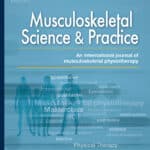Dr Jo Abbott1, Professor Beverly Hale1, Dr Penny Hudson1, Professor Jason Lake1
1University of Chichester, Institute of Applied Sciences, , Bishop Otter Campus, College Lane, Chichester, West Sussex, United Kingdom, PO19 6PE.
Email: jo@drjoabbott.com
Telephone: 0800 3800 603
Presenting Author: Dr Jo Abbott
Background:
Musculoskeletal (MSK) ill-health is the greatest socioeconomic burden for the World’s healthcare systems to manage. Established in ancient history, manual therapy uses a hands-on approach (hereon in referred to as HODA-A, hands-on data acquisition and analysis) provides a safe, affordable, and environmentally convenient assessment and treatment of a person’s MSK system. HODA-A is used to palpate characteristics of a person’s anatomy, becoming the measurement instrument that underpins the majority of MSK investigations conducted by MSK professionals in both MSK medicine (theory, research, and practice) and MSK clinical practice, often a prerequisite that informs a person’s care in many healthcare disciplines.
Purpose :
The existing evidence-based research investigating HODA-A, or studies that have used HODA-A as part of the methodology, are flawed because HODA-A lacks the necessary developmental studies to determine its validity as a measurement instrument. For more than 70 years the evidence-based research has focused on reliability studies of HODA-A, concluding it is clinically unacceptable as a measurement instrument – further fuelling the hands-on/hands-off debate. However, according to the COnsensus-based Standards for the selection of health Measurement INstruments (COSMIN) Risk of Bias (RoB) standards, validity studies must precede reliability studies on all proposed measurement instruments. Therefore, to conduct reliability studies without the necessary ‘first-step’ validity studies on HODA-A constitutes a methodological flaw, is a waste of resources and unethical. Worryingly, within the next 10 years, it is predicted an estimated 250 papers per annum will be published on HODA-A with the same fatal methodological flaws.
Methods:
Initially, a literature review exploring centuries of neurophysiological research, studying how to replicate the human hand for prosthesis and robotics sciences, provided strong evidence detailing five phases that occur when a person is tasked to interpret their active touch. This information supported a later phenomenographic study using sixteen international expert panellists to explore the Scientific Evaluation and Review of Claims in Health Care (SEaRCH™) of HODA-A when used as a measurement instrument in MSK healthcare. The information gained from these extensive studies was evaluated using the COSMIN RoB standards.
Results:
HODA-A uses eight constructs with associated items to conduct manual MSK assessments on a person, and HODA-A requires a complex system approach to understanding the relationships between the eight constructs and items underpinning HODA-A performance.
Conclusion(s):
For the first time in history HODA-A has been exposed to validity testing, offering substantial insights into the necessary measurement theories and conceptual framework needed for HODA-A to be used as a valid measurement instrument in MSK healthcare. Further research exposing HODA-A to COSMIN RoB standards continued.
Implications:
Reliability studies on HODA-A should only be conducted if the methodology of how HODA-A was applied met all the COSMIN RoB standards.
Keywords:
hands-on, musculoskeletal, reliability
Funding acknowledgements:
This work was unfunded.
Ethics approval:
The experiment was approved by the University of Chichester’s ethics committee and in accordance with the University’s Research Ethics Policy.
Information concerning any presentations or publications of the work made prior to congress:
None.



